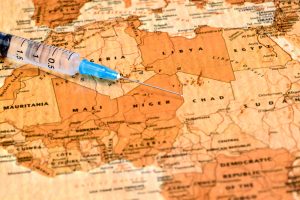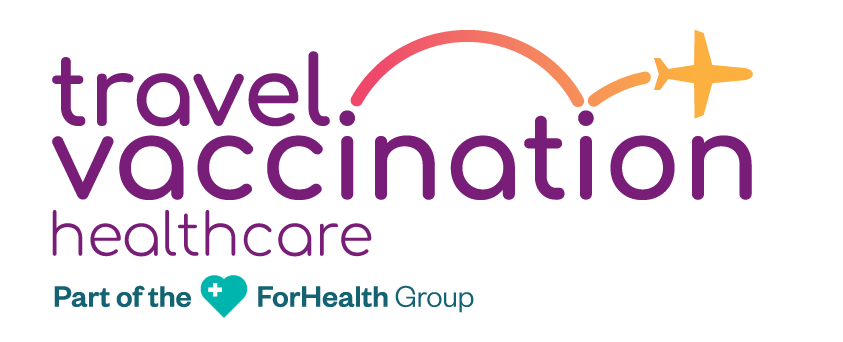Every year, Thailand attracts thousands of visitors from all over Australia. With its glorious beaches, delicious food and rich culture, it’s not hard to see why. But travelling to foreign countries comes with health risks, so it’s important to protect yourself before you go.
Here we outline the vaccinations you need for Thailand to ensure your trip is memorable for all the right reasons.
Routine vaccinations
Before traveling, it’s advisable to check that you’re up to date with your routine vaccinations.
These vaccines include:
- Measles-mumps-rubella (MMR)
- Poliomyelitis (polio)
- Diphtheria-tetanus-pertussis
- Influenza (flu)
- Varicella (chickenpox)
- COVID-19
- Meningococcal (if relevant for age)
- Shingles and pneumococcal (pneumonia) – depending on your age and health conditions.
Travel Vaccinations
There are numerous vaccines recommended for travel to Thailand. Your doctor or travel health professional can provide more detail on what is specifically required for your personal situation.
Hepatitis A
Hepatitis A is a viral infection that can be transmitted through contaminated food and water in all parts of Thailand.
To protect yourself from this disease, it’s advisable to schedule an appointment with your doctor or travel health professional for a Hepatitis A vaccination about 4 to 6 weeks before you head to Thailand. This will allow sufficient time for the vaccination to be administered and for your body to develop immunity.
Typhoid
Typhoid is a moderate risk to travellers venturing to smaller cities, villages and rural areas off the beaten track. Like Hepatitis A, Typhoid is transmitted through contaminated food and water.
Single shot combination vaccines are available that offer protection against both Typhoid and Hepatitis A. The vaccination should be received about 4 to 6 weeks before you head to Thailand.
Hepatitis B
Hepatitis B is a viral infection that affects the liver. It’s caused by a virus that can be present in blood and various bodily fluids, including semen and vaginal fluid. The Hepatitis B virus is highly contagious and can be transmitted through contact with items that are contaminated with blood or through person-to-person contact with these infected fluids.
The risk of infection is elevated in adventure-style activities which often involve a higher risk of injury.
The Hepatitis B vaccine is recommended for travellers visiting regions with intermediate or high cases of hepatitis B or those partaking in activities that increase their risk of exposure.
The adult-formulation hepatitis B vaccine is typically administered in a 3-dose schedule. It can also be provided in a vaccine combined with Hepatitis A if you need protection against both Hepatitis A and B and are looking to avoid that extra needle. Speak with you doctor or travel health professional about your options.
Japanese encephalitis
Japanese encephalitis is spread through mosquito bites. Mosquitoes become infected by feeding on infected pigs and waterbirds, however, we can only contract this infection if bitten by a mosquito.
Vaccination is primarily recommended for individuals planning longer stays in Thailand (over one month). However, it’s also important for those engaging in outdoor activities and visiting rural, remote or at-risk areas, even on shorter trips.
Vaccination is also recommended if your travel falls within the wet season or your accommodation does not have adequate screens, air conditioning or bed nets.
Rabies
Rabies, which is a viral infection, is spread by the bite or scratch of an infected animal such as a dog, cat, bat or monkey. If you are bitten or scratched by a rabid animal (even if vaccinated), this should be treated seriously and medical treatment sought urgently.
Speak to your doctor or travel health professional about having the rabies injection at least 1 month before departure and avoid contact with these animals while you are away.
Before you go
It’s important to consult with a doctor or travel health professional regarding your specific travel plans which may include the following considerations:
- Your immunisation history
- Travel itinerary
- Type of accommodation
- Length of stay
- Scheduled activities
- Your current health and wellbeing.
Vaccination guidelines and recommendations can change over time. Therefore, it’s advisable to seek advice from your doctor or travel health professional for the most up-to-date and reliable information on vaccination requirements and schedules.
It’s essential that you don’t delay your travel vaccinations to the last minute, as certain vaccines may require multiple doses before your trip to ensure effective protection against infections.
Travelling to Thailand and need to know more about vaccination requirements? Contact us today.




